David Smith in Washington, The Guardian•March 13, 2020

'I don't take responsibility': Trump shakes hands and spreads blame over coronavirusMore
He fingered the microphone and put his lips up close. He shook hands with everyone he could. Donald Trump, who promised you’re going to win so much you’ll get sick of winning, might also just make you sick.
In the White House rose garden on Friday, the US president defied the advice of medical experts standing behind him and behaved like a one-man coronavirus cannon.
Trump declared a national emergency (“two very big words”, said the man known for his misspelled tweets) that would release up to $50bn to combat the pandemic, which this week topped 2,000 cases and had the lamps going out all over America.
Reporters wanted to know whether this 73-year-old man with a poor diet – his former doctor reportedly hid cauliflower in his mashed potatoes – is putting himself and others at risk. Brazilian president Jair Bolsonaro’s press secretary tested positive for coronavirus days after taking part in meetings with Trump at his Mar-a-Lago estate in Florida.
Should Trump therefore self-isolate? “Well, I don’t know that I had exposure, but I don’t have any of the symptoms,” he replied. “And we do have a White House doctor and, I should say, many White House doctors, frankly. And I asked them that same question, and they said, ‘You don’t have any symptoms whatsoever.’ And we don’t want people without symptoms to go and do the test. The test is not insignificant.”
But later another reporter pushed him harder, noting that a person without symptoms might still be infected. Question: “Are you being selfish by not getting tested and potentially exposing – ”
Trump: “Well, I didn’t say I wasn’t going to be tested.”
Question: “Are you going to be?”
Trump: “Most likely, yeah. Most likely.”
Question: “When do you think that will happen?”
Trump: “Not for that reason, but because I think I will do it anyway. Fairly soon.”
Coronavirus is a crisis of a different magnitude from those faced by Trump before. It has upended daily life and left liberals cursing the cosmic dice: how come Tom Hanks is infected while Trump gets off scot-free?
When the celebrity businessman has his back to the wall, he calls for the cavalry of corporate America. At Friday’s press conference he rolled in business titans to save the day, treating them to plenty of handshakes and little social distancing.
“You’re going to be hearing from some of the largest companies and greatest retailers and medical companies in the world,” he said, presumably hoping to reassure the stock market. “They’re standing right behind me and to the side of me ... they’re celebrities in their own right.”
Trump announced that “drive-thru” testing centers would be set up in parking lots at CVS, Target, Walmart and Walgreens stores.
This, he hopes, will resolve a spectacularly awful time lag in testing kits being made available. America has been put to shame by South Korea.
Trump seems eager to wash his hands of the matter, if not actually wash his hands
The wartime president Harry Truman used to keep a sign on his desk that said: “The buck stops here.” Trump, however, seems eager to wash his hands of the matter, if not actually wash his hands. “Yeah, no, I don’t take responsibility at all, because we were given a set of circumstances and we were given rules, regulations, and specifications from a different time,” he said. “It wasn’t meant for this kind of an event with the kind of numbers that we’re talking about.”
Then Yamiche Alcindor of PBS asked why, in 2018, Trump had dissolved the White House’s National Security Council directorate for global health security and biodefense.
Like a schoolboy caught red-handed, he blustered: “Well, I just think it’s a nasty question because what we’ve done is – and Tony has said numerous times that we’ve saved thousands of lives because of the quick closing. And when you say ‘me’, I didn’t do it. We have a group of people I could – ”
Alcindor followed up. Trump rambled: “It’s the – it’s the administration. Perhaps they do that. You know, people let people go. You used to be with a different newspaper than you are now. You know, things like that happen.”
It is not the first time he has resorted to the word “nasty” when asked a tough question by a woman of colour.
The buck stops here.
In the White House rose garden on Friday, the US president defied the advice of medical experts standing behind him and behaved like a one-man coronavirus cannon.
Trump declared a national emergency (“two very big words”, said the man known for his misspelled tweets) that would release up to $50bn to combat the pandemic, which this week topped 2,000 cases and had the lamps going out all over America.
Reporters wanted to know whether this 73-year-old man with a poor diet – his former doctor reportedly hid cauliflower in his mashed potatoes – is putting himself and others at risk. Brazilian president Jair Bolsonaro’s press secretary tested positive for coronavirus days after taking part in meetings with Trump at his Mar-a-Lago estate in Florida.
Should Trump therefore self-isolate? “Well, I don’t know that I had exposure, but I don’t have any of the symptoms,” he replied. “And we do have a White House doctor and, I should say, many White House doctors, frankly. And I asked them that same question, and they said, ‘You don’t have any symptoms whatsoever.’ And we don’t want people without symptoms to go and do the test. The test is not insignificant.”
But later another reporter pushed him harder, noting that a person without symptoms might still be infected. Question: “Are you being selfish by not getting tested and potentially exposing – ”
Trump: “Well, I didn’t say I wasn’t going to be tested.”
Question: “Are you going to be?”
Trump: “Most likely, yeah. Most likely.”
Question: “When do you think that will happen?”
Trump: “Not for that reason, but because I think I will do it anyway. Fairly soon.”
Coronavirus is a crisis of a different magnitude from those faced by Trump before. It has upended daily life and left liberals cursing the cosmic dice: how come Tom Hanks is infected while Trump gets off scot-free?
When the celebrity businessman has his back to the wall, he calls for the cavalry of corporate America. At Friday’s press conference he rolled in business titans to save the day, treating them to plenty of handshakes and little social distancing.
“You’re going to be hearing from some of the largest companies and greatest retailers and medical companies in the world,” he said, presumably hoping to reassure the stock market. “They’re standing right behind me and to the side of me ... they’re celebrities in their own right.”
Trump announced that “drive-thru” testing centers would be set up in parking lots at CVS, Target, Walmart and Walgreens stores.
This, he hopes, will resolve a spectacularly awful time lag in testing kits being made available. America has been put to shame by South Korea.
Trump seems eager to wash his hands of the matter, if not actually wash his hands
The wartime president Harry Truman used to keep a sign on his desk that said: “The buck stops here.” Trump, however, seems eager to wash his hands of the matter, if not actually wash his hands. “Yeah, no, I don’t take responsibility at all, because we were given a set of circumstances and we were given rules, regulations, and specifications from a different time,” he said. “It wasn’t meant for this kind of an event with the kind of numbers that we’re talking about.”
Then Yamiche Alcindor of PBS asked why, in 2018, Trump had dissolved the White House’s National Security Council directorate for global health security and biodefense.
Like a schoolboy caught red-handed, he blustered: “Well, I just think it’s a nasty question because what we’ve done is – and Tony has said numerous times that we’ve saved thousands of lives because of the quick closing. And when you say ‘me’, I didn’t do it. We have a group of people I could – ”
Alcindor followed up. Trump rambled: “It’s the – it’s the administration. Perhaps they do that. You know, people let people go. You used to be with a different newspaper than you are now. You know, things like that happen.”
It is not the first time he has resorted to the word “nasty” when asked a tough question by a woman of colour.
The buck stops here.
As the coronavirus outbreak spread worldwide, the United States was far slower to produce test kits than other countries.
In the news conference, a reporter asked Trump if he took "responsibility" for the shortage, and when he could guarantee that there'd be enough tests for Americans.
"Yeah, I don't take responsibility at all because we were given a set of circumstances and we were given rules, regulations, and specifications from a different time," Trump replied.
I don't take responsibility at all' for lack of coronavirus tests, Trump says
President Donald Trump refused to accept any responsibility for the slow rate of coronavirus testing in the United States, saying on Friday that he was "given a set of circumstances" that wasn't meant for the high numbers of potential COVID-19 infections.
"No, I don't take responsibility at all. Because we were given a -- a set of circumstances, and we were given rules, regulations and specifications from a different time. It wasn't meant for this kind of -- an event with the kind of numbers that we're talking about," Trump responded.

© Provided by CNBC President Donald Trump in the Rose Garden
of the White House in Washington, DC, May 16, 2019.
WASHINGTON -- President Donald Trump refused to accept any responsibility for the slow rate of coronavirus testing in the United States, saying on Friday that he was "given a set of circumstances" that wasn't meant for the high numbers of potential COVID-19 infections.
"What we've done, and one of the reasons people are respecting what we've done, is we've gotten it done very early, and we've also kept a lot of people out," Trump said during a press conference in the Rose Garden, referring to early actions
During the briefing, NBC's Kristen Welker asked Trump whether he took responsibility for the testing lag, which one member of his own task force called "a failing."
"No, I don't take responsibility at all. Because we were given a -- a set of circumstances, and we were given rules, regulations and specifications from a different time. It wasn't meant for this kind of -- an event with the kind of numbers that we're talking about," Trump responded.
In reality, America's low rate of COVID-19 testing has drawn criticism from health experts around the world, who say the slow rate of testing obscures the actual rate of infection in the United States, which is likely far higher than tests have so far confirmed.

During the earliest stages of the outbreak, the Centers for Disease Control and Prevention distributed faulty tests to state and local health departments. Once the flawed tests were discovered and discarded, bureaucratic red tape held up the process of granting exemptions to private labs to make their own tests.
As criticism of the Trump administration's coronavirus testing protocol has intensified, and testing in other countries like South Korea has outpaced the U.S. by orders of magnitude, Trump has sought to shift the blame onto his predecessor, Barack Obama.
On Friday, asked about testing rates, Trump brought up the example of the 2009 swine flu, or H1N1 epidemic, in order to criticize Obama and boast of his success.
"If you go back to the swine flu, it was nothing like this, they didn't do testing like this, and they lost approximately 14,000 people. They started thinking about testing when it was far too late," Trump said.
Former Obama administration official Ron Klain, who managed the 2014 Ebola outbreak, disputed Trump's assessment. "The Obama administration tested 1 million people for H1N1 in the first month after the first US diagnosed case," Klain tweeted on Thursday. "The first US coronavirus case was 50+ days ago. And we haven't event tested 10,000 people yet."
This is not the first time Trump has attacked Obama's outbreak response as inadequate, an argument that has political implications as Obama's vice president, Joe Biden, appears increasingly likely to be Trump's 2020 Democratic opponent.
"The Obama administration made a decision on testing that turned out to be very detrimental to what we're doing, and we undid that decision a few days ago so that the testing can take place in a much more accurate and rapid fashion," Trump said at a White House meeting with airline executives in early March.
"That was a decision we disagreed with. I don't think we would have made it, but for some reason it was made. But we've undone that decision."
Yet experts and laboratory trade organizations say there was no "decision," and they don't know what Trump is referring to.
"We aren't sure what rule is being referenced," Michelle Forman, a spokeswoman for the Association of Public Health Laboratories, told The Washington Post in early March.
"To our knowledge, there were some discussions about laboratory developed test rules but nothing was ever put into place. So we are not aware of anything that changed how LDTs are regulated."
Moreover, the rules that govern how testing labs respond to emergencies aren't Obama era rules at all --- they're George W. Bush era rules, part of his administration's post-9/11 counterterrorism policy.
In 2004, Bush signed into law the Project BioShield Act, which permitted the FDA to issue Emergency Use Authorizations to labs during public health crises. If a lab had a new treatment or test that seemed promising, the FDA would fast track its approval process.
But these details do not appear to have hampered Trump.
On Friday, as confirmed U.S. cases topped 1,700, the president again zeroed in on what he said was "a testing problem" that Obama had failed to fix.
"For decades the CDC looked at, and studied, its testing system, but did nothing about it," Trump tweeted early Friday morning. "It would always be inadequate and slow for a large scale pandemic, but a pandemic would never happen, they hoped. President Obama made changes that only complicated things further," Trump tweeted.
"Their response to H1N1 Swine Flu was a full scale disaster, with thousands dying, and nothing meaningful done to fix the testing problem, until now. The changes have been made and testing will soon happen on a very large scale basis. All Red Tape has been cut, ready to go!" Trump said.
Trump didn't specify what "changes" Obama made. According to experts, there weren't any
WASHINGTON -- President Donald Trump refused to accept any responsibility for the slow rate of coronavirus testing in the United States, saying on Friday that he was "given a set of circumstances" that wasn't meant for the high numbers of potential COVID-19 infections.
"What we've done, and one of the reasons people are respecting what we've done, is we've gotten it done very early, and we've also kept a lot of people out," Trump said during a press conference in the Rose Garden, referring to early actions
During the briefing, NBC's Kristen Welker asked Trump whether he took responsibility for the testing lag, which one member of his own task force called "a failing."
"No, I don't take responsibility at all. Because we were given a -- a set of circumstances, and we were given rules, regulations and specifications from a different time. It wasn't meant for this kind of -- an event with the kind of numbers that we're talking about," Trump responded.
In reality, America's low rate of COVID-19 testing has drawn criticism from health experts around the world, who say the slow rate of testing obscures the actual rate of infection in the United States, which is likely far higher than tests have so far confirmed.

During the earliest stages of the outbreak, the Centers for Disease Control and Prevention distributed faulty tests to state and local health departments. Once the flawed tests were discovered and discarded, bureaucratic red tape held up the process of granting exemptions to private labs to make their own tests.
As criticism of the Trump administration's coronavirus testing protocol has intensified, and testing in other countries like South Korea has outpaced the U.S. by orders of magnitude, Trump has sought to shift the blame onto his predecessor, Barack Obama.
On Friday, asked about testing rates, Trump brought up the example of the 2009 swine flu, or H1N1 epidemic, in order to criticize Obama and boast of his success.
"If you go back to the swine flu, it was nothing like this, they didn't do testing like this, and they lost approximately 14,000 people. They started thinking about testing when it was far too late," Trump said.
Former Obama administration official Ron Klain, who managed the 2014 Ebola outbreak, disputed Trump's assessment. "The Obama administration tested 1 million people for H1N1 in the first month after the first US diagnosed case," Klain tweeted on Thursday. "The first US coronavirus case was 50+ days ago. And we haven't event tested 10,000 people yet."
This is not the first time Trump has attacked Obama's outbreak response as inadequate, an argument that has political implications as Obama's vice president, Joe Biden, appears increasingly likely to be Trump's 2020 Democratic opponent.
"The Obama administration made a decision on testing that turned out to be very detrimental to what we're doing, and we undid that decision a few days ago so that the testing can take place in a much more accurate and rapid fashion," Trump said at a White House meeting with airline executives in early March.
"That was a decision we disagreed with. I don't think we would have made it, but for some reason it was made. But we've undone that decision."
Yet experts and laboratory trade organizations say there was no "decision," and they don't know what Trump is referring to.
"We aren't sure what rule is being referenced," Michelle Forman, a spokeswoman for the Association of Public Health Laboratories, told The Washington Post in early March.
"To our knowledge, there were some discussions about laboratory developed test rules but nothing was ever put into place. So we are not aware of anything that changed how LDTs are regulated."
Moreover, the rules that govern how testing labs respond to emergencies aren't Obama era rules at all --- they're George W. Bush era rules, part of his administration's post-9/11 counterterrorism policy.
In 2004, Bush signed into law the Project BioShield Act, which permitted the FDA to issue Emergency Use Authorizations to labs during public health crises. If a lab had a new treatment or test that seemed promising, the FDA would fast track its approval process.
But these details do not appear to have hampered Trump.
On Friday, as confirmed U.S. cases topped 1,700, the president again zeroed in on what he said was "a testing problem" that Obama had failed to fix.
"For decades the CDC looked at, and studied, its testing system, but did nothing about it," Trump tweeted early Friday morning. "It would always be inadequate and slow for a large scale pandemic, but a pandemic would never happen, they hoped. President Obama made changes that only complicated things further," Trump tweeted.
"Their response to H1N1 Swine Flu was a full scale disaster, with thousands dying, and nothing meaningful done to fix the testing problem, until now. The changes have been made and testing will soon happen on a very large scale basis. All Red Tape has been cut, ready to go!" Trump said.
Trump didn't specify what "changes" Obama made. According to experts, there weren't any
---30---
Trump Slams 'Nasty' Question As PBS Reporter Challenges Him On Shutdown Of Pandemic Unit
Mary Papenfuss, HuffPost•March 13, 2020
President Donald Trump lashed out at a PBS reporter on Friday when she challenged him about the shutdown of a pandemic response unit within the National Security Council in 2018.
After calling journalist Yamiche Alcindor’s question “nasty,” the president claimed he knew absolutely nothing about the topic — and cut her off. Sen. Sherrod Brown (D-Ohio) quickly attempted to jog Trump’s memory by posting a letter on Twitter he’d sent the president nearly two years ago complaining about the Trump administration move.
Trump’s former national security adviser John Bolton dissolved the NSC’s Global Health Security team in a controversial decision widely covered by the media. The Obama administration had established the unit after the Ebola outbreak to coordinate the U.S. government’s response to a pandemic.
Alcindor, of “PBS NewsHour,” asked Trump to reconcile the elimination of the pandemic team with his insistence Friday that he takes no responsibility for a critical dearth of testing in the U.S. fight against coronavirus. She noted that officials who had worked in the unit said the White House “lost valuable time” without it.
“I just think it’s a nasty question,” Trump replied. “When you say ‘me,’ I didn’t do it ... You say we did that, I don’t know anything about it.”
Alcindor pressed: “You don’t know about the reorganization that happened at the National Security Council?” Trump responded: “It’s the administration. Perhaps they do that ... let people go. You used to be with a different newspaper than you are now, you know things like that happen.”
Trump also praised himself, claiming that his top health expert Anthony Fauci, director of the National Institute of Allergy and Infectious Diseases, has said “innumerous times we’ve saved thousands of lives because of the quick [border] closing.”
Fauci testified before a House subcommittee on Thursday that the ongoing shortfall of coronavirus testing in the U.S. was “a failing.” The “idea of anybody getting it [testing] easily the way people in other countries are doing it, we’re not set up for that. Do I think we should be? Yes.”
When another reporter asked Trump on Friday if he took responsibility for that “failing,” he responded: “Yeah, no, I don’t take any responsibility at all.” He claimed he was hamstrung by “circumstances” and “regulations” and aims to finally ramp up testing now.
In a tweet, Alcindor defended her question as “relevant, fair and truth-seeking.”
Video of my question to @realDonaldTrump today on his administration's disbanding of the White House team responsible for coordinating responses to pandemics.
He called my question nasty & said he knew nothing about it.
I call it a relevant, fair, and truth-seeking question. https://t.co/ncYwqZ0Xtp
— Yamiche Alcindor (@Yamiche) March 13, 2020
Trump’s “nasty” insult is often directed at strong women. He has called former Secretary of State Hillary Clinton, San Juan Mayor Carmen Yulín Cruz, Sen. Kamala Harris (D-Calif.), Duchess of Sussex Meghan Markle, House Speaker Nancy Pelosi (D-Calif.), Sen. Elizabeth Warren (D-Mass.), Danish Prime Minister Mette Frederiksen and Sen. Mazie Hirono (D-Hawaii), among a number of others, “nasty.”
Mary Papenfuss, HuffPost•March 13, 2020
President Donald Trump lashed out at a PBS reporter on Friday when she challenged him about the shutdown of a pandemic response unit within the National Security Council in 2018.
After calling journalist Yamiche Alcindor’s question “nasty,” the president claimed he knew absolutely nothing about the topic — and cut her off. Sen. Sherrod Brown (D-Ohio) quickly attempted to jog Trump’s memory by posting a letter on Twitter he’d sent the president nearly two years ago complaining about the Trump administration move.
Trump’s former national security adviser John Bolton dissolved the NSC’s Global Health Security team in a controversial decision widely covered by the media. The Obama administration had established the unit after the Ebola outbreak to coordinate the U.S. government’s response to a pandemic.
Alcindor, of “PBS NewsHour,” asked Trump to reconcile the elimination of the pandemic team with his insistence Friday that he takes no responsibility for a critical dearth of testing in the U.S. fight against coronavirus. She noted that officials who had worked in the unit said the White House “lost valuable time” without it.
“I just think it’s a nasty question,” Trump replied. “When you say ‘me,’ I didn’t do it ... You say we did that, I don’t know anything about it.”
Alcindor pressed: “You don’t know about the reorganization that happened at the National Security Council?” Trump responded: “It’s the administration. Perhaps they do that ... let people go. You used to be with a different newspaper than you are now, you know things like that happen.”
Trump also praised himself, claiming that his top health expert Anthony Fauci, director of the National Institute of Allergy and Infectious Diseases, has said “innumerous times we’ve saved thousands of lives because of the quick [border] closing.”
Fauci testified before a House subcommittee on Thursday that the ongoing shortfall of coronavirus testing in the U.S. was “a failing.” The “idea of anybody getting it [testing] easily the way people in other countries are doing it, we’re not set up for that. Do I think we should be? Yes.”
When another reporter asked Trump on Friday if he took responsibility for that “failing,” he responded: “Yeah, no, I don’t take any responsibility at all.” He claimed he was hamstrung by “circumstances” and “regulations” and aims to finally ramp up testing now.
In a tweet, Alcindor defended her question as “relevant, fair and truth-seeking.”
Video of my question to @realDonaldTrump today on his administration's disbanding of the White House team responsible for coordinating responses to pandemics.
He called my question nasty & said he knew nothing about it.
I call it a relevant, fair, and truth-seeking question. https://t.co/ncYwqZ0Xtp
— Yamiche Alcindor (@Yamiche) March 13, 2020
Trump’s “nasty” insult is often directed at strong women. He has called former Secretary of State Hillary Clinton, San Juan Mayor Carmen Yulín Cruz, Sen. Kamala Harris (D-Calif.), Duchess of Sussex Meghan Markle, House Speaker Nancy Pelosi (D-Calif.), Sen. Elizabeth Warren (D-Mass.), Danish Prime Minister Mette Frederiksen and Sen. Mazie Hirono (D-Hawaii), among a number of others, “nasty.”
 T
T



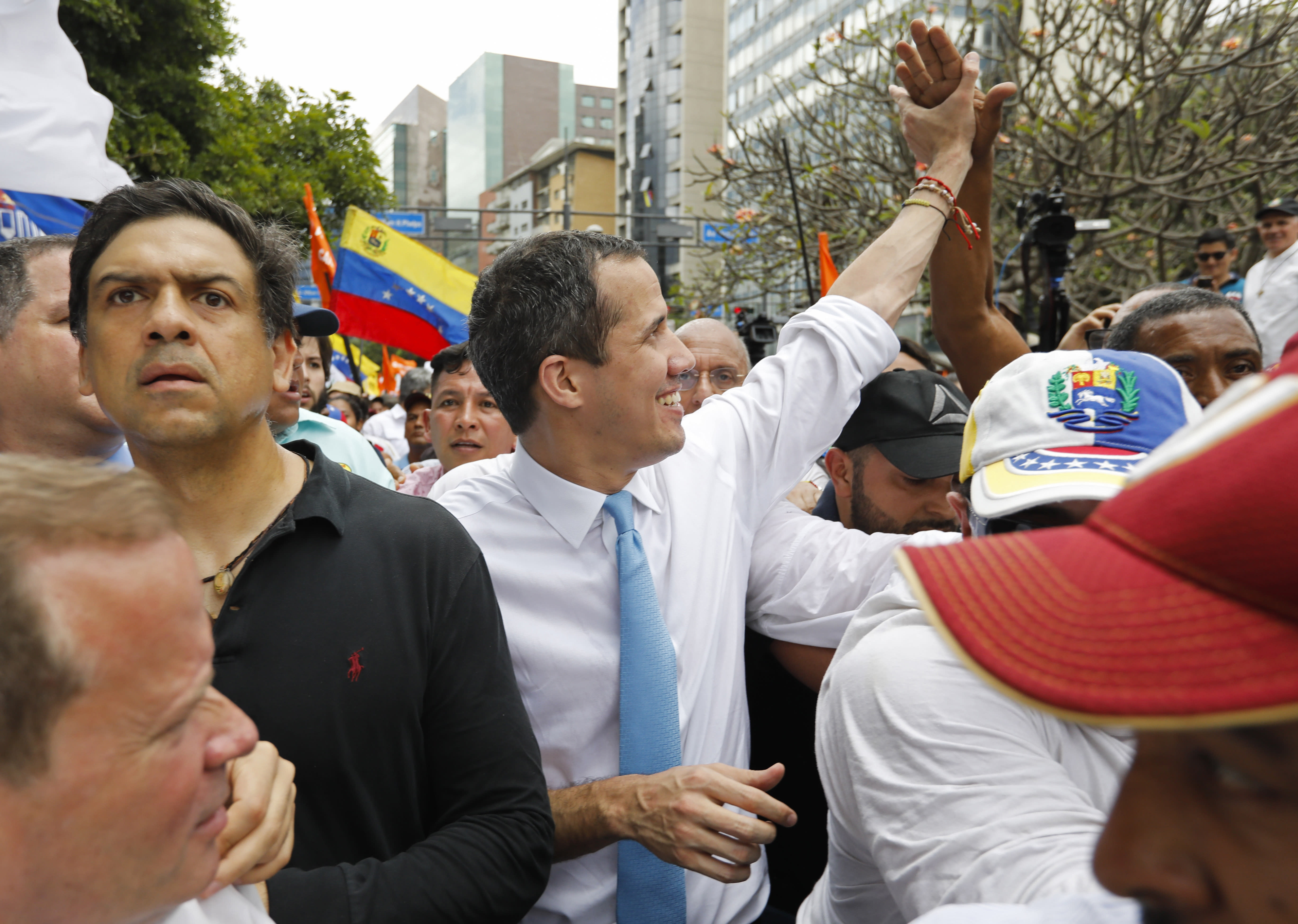
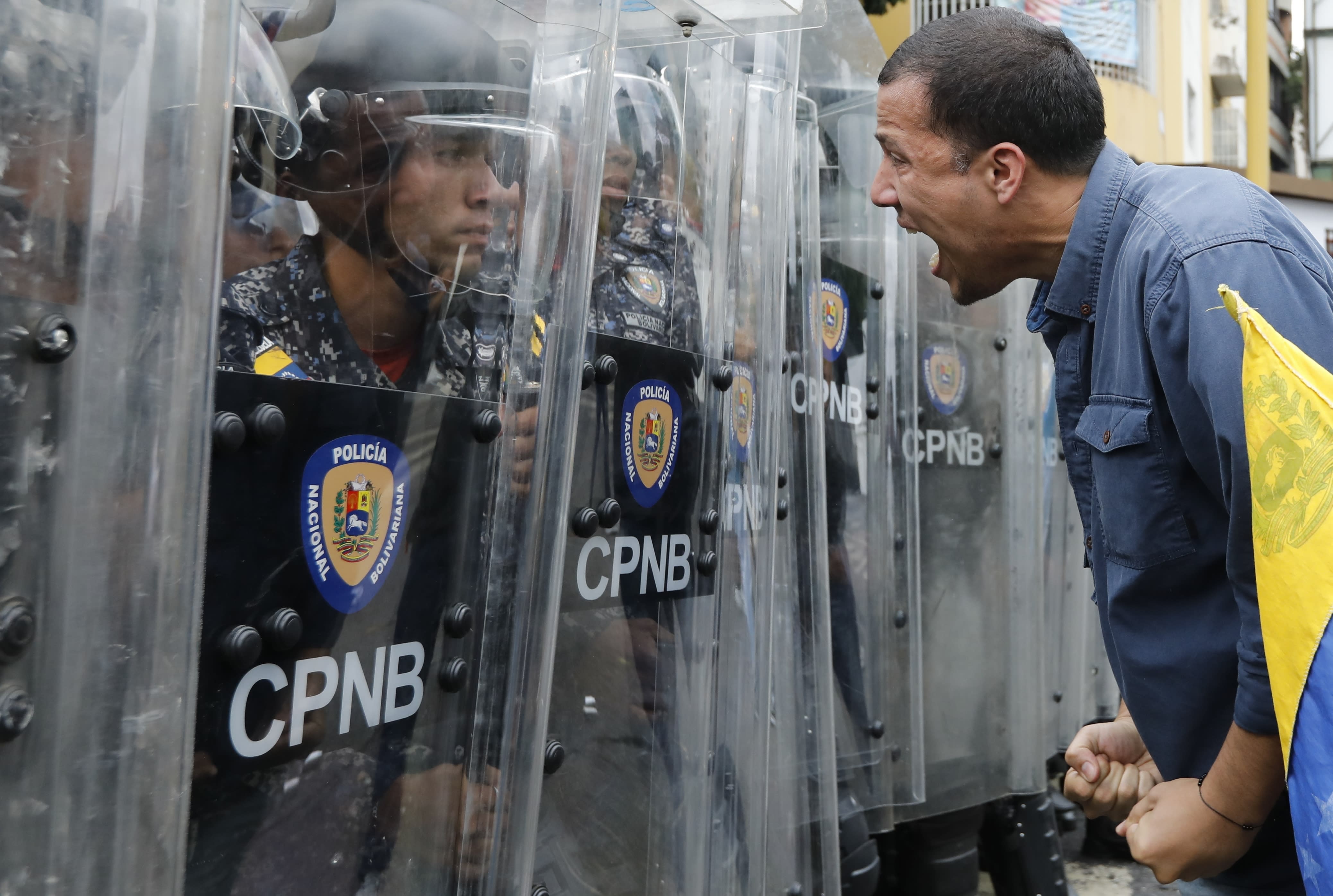
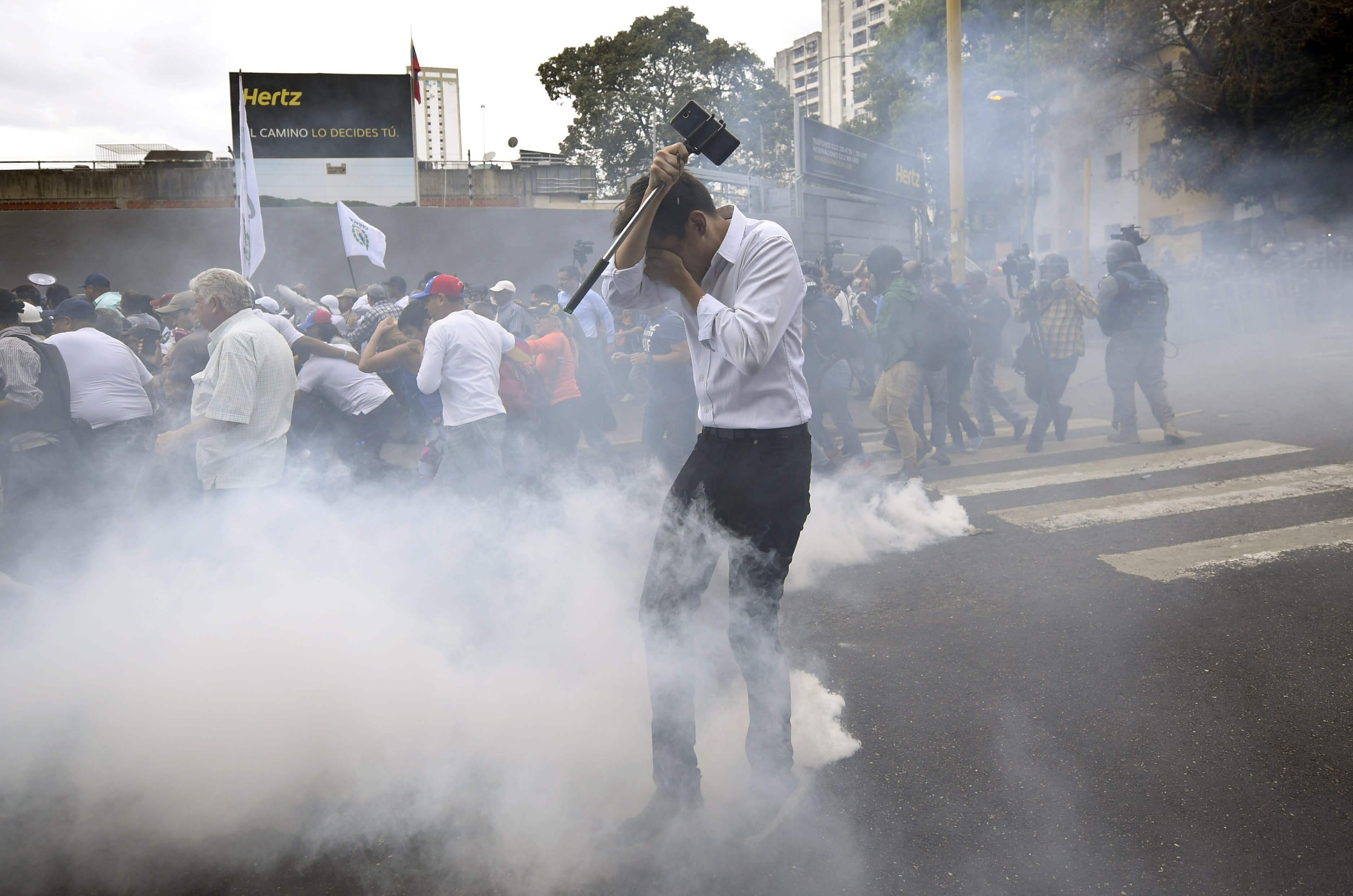
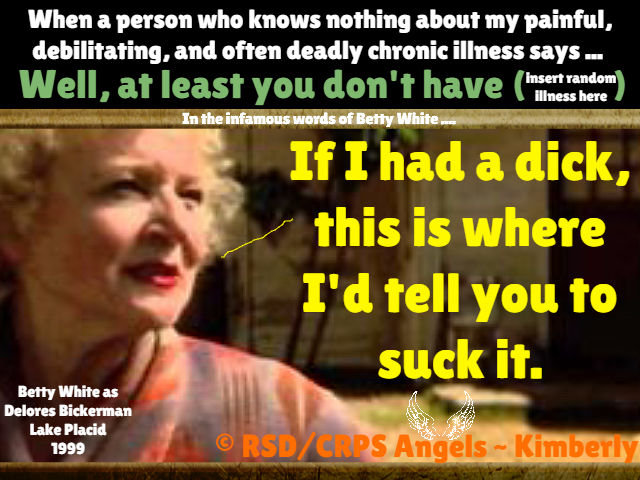
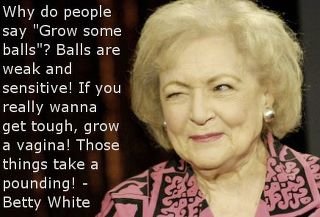


/media/img/posts/2020/03/Facui2/original.png)